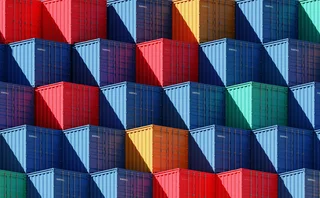
Derivatives house of the year, Asia: BNP Paribas
Energy Risk Asia awards, 2018: BNP Paribas continues to boost its presence in Asian commodities with a focus on bespoke solutions

BNP Paribas continued its expansion into Asian commodities markets this year with a focus on tailored solutions for clients in oil, gas and metals. Its Asia presence was further supported by the rollout of its Cortex CD electronic trading platform to major Asian trading hubs.
Operating in the commodities markets this year has been challenging due to increased price volatility as well as extended periods of low correlation between commodities. This has impacted firms in different ways and required very different, customised solutions.
In one deal, BNP Paribas developed a highly bespoke structured transaction for a client that needed short-term working capital on a revolving basis to fulfill an offtake agreement with a mature oil field. The client also needed medium-term hedging to cover production from the field.
“We combined the hedge to secure future production … with a working capital facility, to which the hedging gets linked as soon as our counterparty takes delivery,” explains Audrey Safra, head of commodity derivatives for Asia-Pacific at BNP Paribas. When the counterparty wishes to offtake production from the field, BNP Paribas lends the required funds and moves a portion of the hedge to secure the financing facility from a pricing perspective.
“This enables us to provide the most competitive pricing to the client and also optimise the utilisation of credit lines,” Safra adds. “And as soon as the offtake is complete, the working capital facility is repaid and the hedge is settled. So it is fully customised to the actual flow in and out of the tanker.”
BNP Paribas provided both the lending and the hedging elements of the solution, which meant managing the associated market and counterparty credit risk. Market risk management certainly came into play during 2018 as oil prices rallied, reaching a four-year high by early October. After being put in place more than a year ago, the deal has been restructured twice this year to account for oil market changes.
“The mark-to-market of the trade evolved [due to oil price increases] and the client wanted to restructure the hedge, so we worked to take the medium-term position out to three years [from 2.5 years], which also involved providing some additional financing facilities,” Safra says. “We accompany the client along the life of the trade and we have the flexibility to revise the terms of the hedge in this way.”
We accompany the client along the life of the trade and we have the flexibility to revise the terms of the hedge in this way
Audrey Safra, BNP Paribas
The deal involved credit risk on the loan and also counterparty risk on the hedge transaction, notes Mikko Rusi, head of Asia-Pacific foreign exchange, local markets and commodity derivatives at BNP Paribas. “We linked the hedge with the loan, so we have a lien against the actual physical product and we have hedged the price. We reduce the risk in that sense.”
The bank also needed to have a deep understanding of the underlying asset, particularly as it was a mature oil field. “To take credit risk so close to the asset … you really have to be in the commodities business as a complete institution – not just for hedging, not just for lending, but as a combination,” he adds.
BNP Paribas also expanded its presence in other markets, offering new products in the liquefied natural gas market, where having a global footprint proved very useful. “This is very much an Asian business for us, but the global nature of LNG [means] it is key to be able to cover clients in all regions,” Rusi says.
This year’s disconnect between gas and oil prices led to increased demand from Asian LNG buyers to hedge supply contracts against gas indexes rather than against Brent or West Texas Intermediate crude futures. Additionally, increased volatility and widening regional differentials led firms towards Asia-based indexes such as the Japan Korea Marker and the Japanese Crude Cocktail, both of which BNP Paribas was able to offer.
By being active in the main gas supply and demand hubs worldwide, BNP Paribas is able to support risk management on a global basis for LNG market participants. “There is a growing need to manage risk across various locations because there is supply and demand from completely different locations across the globe. As a result, clients have a lot of basis risk,” says Nishan Hegde, commodity salesprson, APAC, at BNP Paribas. “A lot of our customers in Asia also use contracts linked to local markers or to crude, which requires another level of risk management. BNP Paribas is able to bring all of these capacities together.”
An ongoing initiative for BNP Paribas has been to push commodity flow business on to Cortex CD. The platform is undergoing a phased rollout across Asia and is now used daily in the region. It currently offers underlyings including LME base metals, Brent and Dubai crude. Currently available in the main Asian trading hubs, Rusi expects Cortex CD to be expanded to other Asian countries over the next 12 months.
Only users who have a paid subscription or are part of a corporate subscription are able to print or copy content.
To access these options, along with all other subscription benefits, please contact info@risk.net or view our subscription options here: http://subscriptions.risk.net/subscribe
You are currently unable to print this content. Please contact info@risk.net to find out more.
You are currently unable to copy this content. Please contact info@risk.net to find out more.
Copyright Infopro Digital Limited. All rights reserved.
As outlined in our terms and conditions, https://www.infopro-digital.com/terms-and-conditions/subscriptions/ (point 2.4), printing is limited to a single copy.
If you would like to purchase additional rights please email info@risk.net
Copyright Infopro Digital Limited. All rights reserved.
You may share this content using our article tools. As outlined in our terms and conditions, https://www.infopro-digital.com/terms-and-conditions/subscriptions/ (clause 2.4), an Authorised User may only make one copy of the materials for their own personal use. You must also comply with the restrictions in clause 2.5.
If you would like to purchase additional rights please email info@risk.net
More on Commodities
Energy Risk Asia Awards 2024: The winners
Winning firms adapt to change with exemplary risk management skills
Foreign funds are bulls in China’s onshore commodity futures
Growing participation from overseas investors is boosting liquidity in what’s already a boom market
Energy Risk Software Rankings 2024: IT demands increase amid rising risk
Heightened geopolitical and credit risk increase requirements on commodities software
Energy Risk Asia Awards 2023: The winners
Winning firms demonstrate resilience and robust risk management amid testing times
ION Commodities: addressing the market’s recent pain points
Energy Risk Software Rankings winner’s interview: ION Commodities
Energy Risk Commodity Rankings 2023: adapting to new market dynamics
Winners of the 2023 Commodity Rankings provided reliability when clients faced extreme change
Energy Risk Software Rankings 2023: managing uncertainty
Unpredictable markets make CTRM software choices key
Navigating the volatility and complexity of commodity markets
Commodity markets have experienced significant challenges since the Covid-19 pandemic, the conflict in Ukraine and the subsequent sanctions imposed on Russia. These unprecedented events have caused fluctuations in supply and demand, disrupted global…








